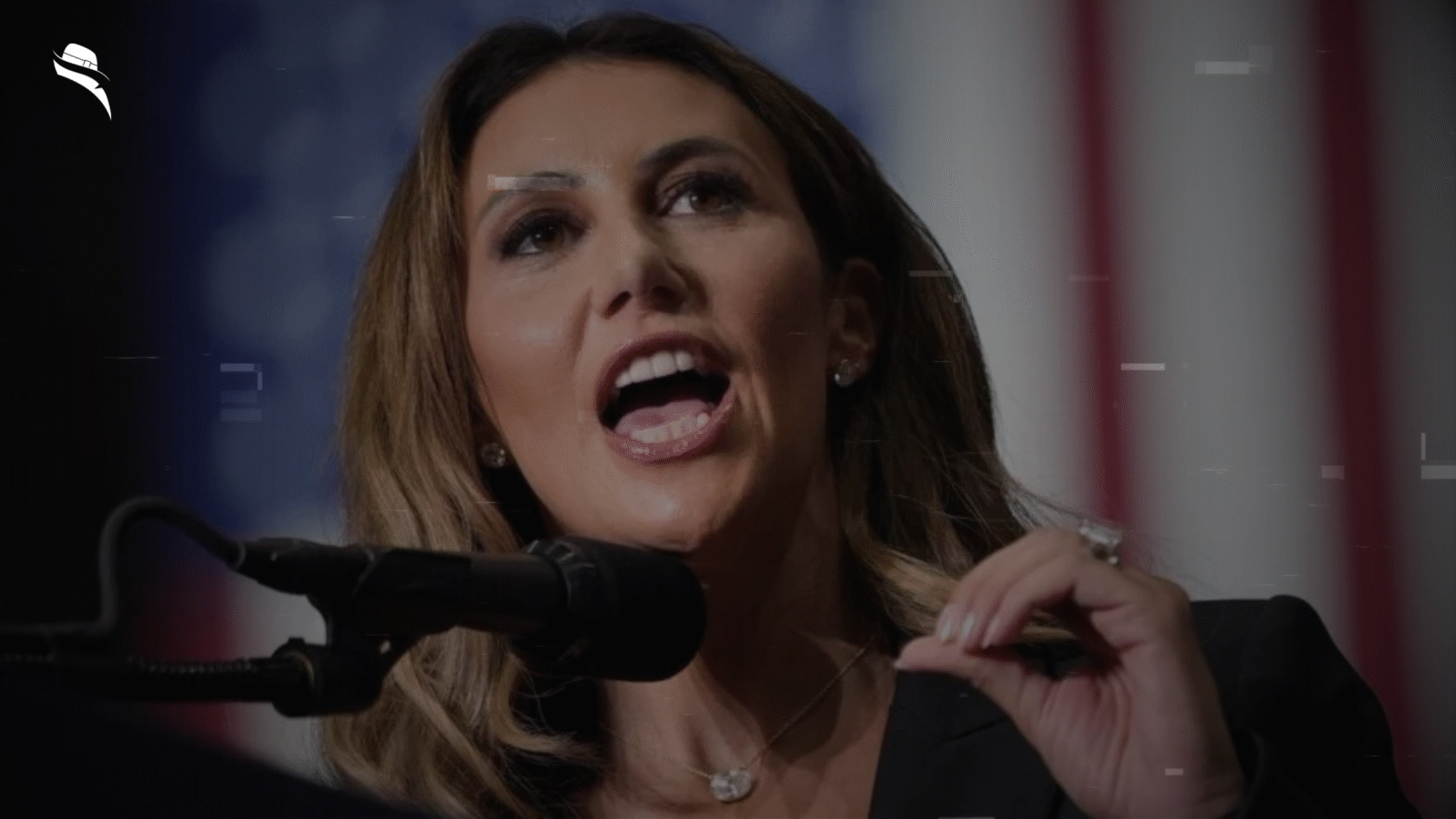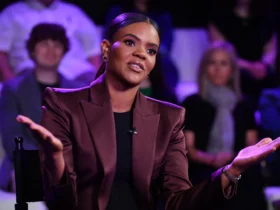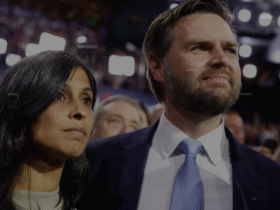While Habba navigates this professional crossroads, her position exists amid a changing political landscape regarding Israel policy. Notably, AIPAC and its allies have spent millions of dollars to defeat progressive champions who advocate for policies including a lasting ceasefire in Gaza. AIPAC and its super PAC invested more than $25 million to defeat two congressional progressives: Reps. Jamaal Bowman and Cori Bush. However, this approach appears increasingly disconnected from Democratic voters, who are less supportive of Israel’s military and foreign policy than at any time since its creation 77 years ago.
This article examines Habba’s position on Israel, her connections to influential lobbying groups, and the controversies surrounding her role in a politically charged environment where organizations like Christians United for Israel claim over 10 million members, primarily evangelical Christians.
Alina Habba’s Current Role and Political Rise
The appointment of Alina Habba to the position of acting U.S. Attorney marked a significant turning point in her legal career. As federal judges consider her potential reappointment, many political analysts are examining her professional trajectory and the factors that contributed to her current prominence in the legal landscape.
Her appointment as acting U.S. Attorney
Habba’s ascension to the role of acting U.S. Attorney for New Jersey came through a temporary appointment process. Unlike permanent appointments that require Senate confirmation, acting appointments follow different protocols, allowing for quicker placement of legal professionals in crucial positions. This interim role grants Habba considerable authority over federal prosecutions and legal matters within her jurisdiction, although with the understanding of the position’s temporary nature.
Connection to Donald Trump
Prior to her current position, Habba established herself as a key legal figure through her association with former President Donald Trump. This professional relationship significantly boosted her public profile and placed her within circles of political influence. Throughout various legal challenges, Habba demonstrated unwavering loyalty to Trump’s legal interests, consequently gaining recognition among conservative political circles. This connection has undoubtedly shaped public perception of her stance on various policy issues, including international relations.
Timeline of her interim term
The 120-day temporary appointment created a specific window for Habba’s service. During this period, she has managed numerous federal cases and made decisions that reflect her legal philosophy and priorities. As her term progresses, scrutiny of her decisions has intensified, particularly regarding how they align with or diverge from previous office policies.
The approaching conclusion of her interim appointment has prompted increased discussion about her potential reappointment. Federal judges now face the decision of either extending her role or selecting a replacement, a process that involves careful evaluation of her performance thus far and consideration of other qualified candidates for the position.
Alina Habba Stance on Israel and War Policy
Throughout her tenure, Alina Habba has maintained clear positions on Middle East policy issues, particularly regarding Israel’s security concerns and regional conflicts. Her legal background shapes her approach to these complex international matters.
Statements on Israel’s right to defend itself
Habba has consistently emphasized Israel’s sovereign right to self-defense in public forums. Throughout diplomatic discussions, she has advocated for strong U.S.-Israel relations based on shared democratic values. When questioned about escalating tensions, she frequently references Israel’s need for security measures against threats along its borders.
In meetings with various stakeholders, Habba has expressed support for Israel’s defensive operations while acknowledging the importance of minimizing civilian casualties. She has framed Israel’s military actions as necessary responses to security threats rather than aggressive posturing. Furthermore, her statements generally align with traditional U.S. policy positions recognizing Israel’s right to protect its citizens.
Position on Gaza conflict and ceasefire
Regarding the Gaza situation, Habba has taken a nuanced stance, balancing security concerns with humanitarian considerations. She has acknowledged the complex nature of ceasefire negotiations while maintaining that any agreement must address Israel’s long-term security requirements.
When addressing peace initiatives, Habba has emphasized that sustainable solutions must include mechanisms to prevent future conflicts. She has called for humanitarian aid delivery systems that meet civilian needs without compromising border security. Moreover, her position reflects concern about the role of non-state actors in perpetuating regional instability.
Explore more in our Israel–Palestine Conflict category for in-depth analysis and the latest updates on this ongoing issue.
Alina Habba on the Mahmoud Khalil case
The Mahmoud Khalil case represents one of the most significant tests of Habba’s approach to Middle East-related legal matters. As acting U.S. Attorney, she has navigated the complex legal and diplomatic dimensions of this high-profile case with careful attention to detail.
Her handling of this case demonstrates her legal philosophy regarding matters intersecting national security and international relations. Specifically, she has insisted on adherence to legal protocols while acknowledging the case’s broader political context. Indeed, her management of the proceedings has been closely watched by legal observers for indications of her jurisprudential approach to cases with international dimensions.
Habba’s positions on these issues continue to evolve as she balances her legal responsibilities with the political sensitivities surrounding Middle East policy.
Understanding Alina Habba’s AIPAC Ties
Examining Alina Habba’s political connections reveals important context about her policy positions. Her relationship with the American Israel Public Affairs Committee (AIPAC) offers insight into her broader approach to Middle East policy.
Public appearances at AIPAC events
The acting U.S. Attorney’s attendance at key AIPAC functions has established her as a recognizable figure within pro-Israel advocacy circles. These appearances, alongside other political appointees, signal her alignment with AIPAC’s policy objectives. Such networking opportunities typically function as important platforms for legal professionals with political aspirations.
Support from pro-Israel lobbying groups
Pro-Israel advocacy organizations have increasingly engaged with legal officials who demonstrate a commitment to their policy priorities. For officials like Habba, this support can translate into important political capital. Additionally, these relationships often influence decision-making on cases with international implications, especially those connected to Middle East policy.
Criticism from progressive coalitions
In contrast, progressive groups have expressed concerns about the influence of lobbying organizations on legal officials. These critics question whether such connections affect the impartial administration of justice. Nonetheless, they acknowledge the complex nature of international relations in the legal sphere. Some progressive coalitions have specifically questioned Habba’s ability to maintain objectivity on cases involving Middle Eastern defendants, given her established political connections.
Major Controversies Surrounding Alina Habba
Alina Habba’s controversial tenure has attracted substantial criticism across multiple fronts.
Alina Habba controversies in legal cases
Habba faced judicial rebuke after ordering Mayor Ras Baraka’s arrest for trespassing at an immigration detention facility, only to drop charges ten days later. A federal magistrate judge criticized her office’s “hasty arrest” as a “worrisome misstep”. She simultaneously charged Congresswoman LaMonica McIver with assault related to the same incident. Additionally, Habba disbanded the office’s Civil Rights Division and terminated a long-running prosecution just days before trial.
Criticism from Democratic lawmakers
New Jersey Senators Cory Booker and Andy Kim have openly opposed Habba, accusing her of pursuing “frivolous and politically motivated prosecutions“. Their refusal to return “blue slips” effectively blocked her Senate confirmation. Representative Mikie Sherrill stated Habba is “unqualified for the job” and has “weaponized it against her perceived political opponents”.
Public backlash and media scrutiny
Reports indicate Habba “shattered morale inside the U.S. attorney’s office,” leaving many prosecutors “looking for a way out”. Her public statement about hoping to “turn New Jersey red” particularly fueled concerns about partisanship.
Ethics complaints and political pressure
The Campaign for Accountability filed a bar complaint alleging multiple violations of professional conduct rules. Separately, Habba faces an ongoing ethics investigation regarding her handling of a sexual harassment case at Trump’s Bedminster golf club.
Final Thoughts
The intersection of legal authority and political ideology comes into sharp focus when analyzing Alina Habba’s stance on Israel. As her temporary appointment faces judicial review, the broader implications of her positions warrant careful consideration.
Her approach to Middle East policy exists within a complex landscape where AIPAC’s influence remains substantial yet increasingly questioned. The organization’s aggressive funding against progressive candidates reflects a political strategy that aligns with Habba’s general positions but raises questions about the independence of legal officials with strong lobby connections.
The pattern of controversies throughout Habba’s tenure—from questionable arrests to divisive restructuring decisions—creates legitimate concerns about how personal politics might influence legal judgment. This becomes particularly relevant when examining her handling of cases with international dimensions or those involving individuals of Middle Eastern descent.
Ultimately, Habba’s record presents a case study in the challenges of separating personal political viewpoints from professional legal responsibilities. Given these points, her stance on Israel cannot be viewed in isolation but must be understood as part of a broader political identity that appears to influence her legal decision-making. Throughout this analysis, the question remains whether public officials in legal positions should maintain such visible political alignments, especially on sensitive international issues that may come before their offices.
FAQs
1. What is Alina Habba’s stance on Israel?
Alina Habba has consistently supported Israel’s right to self-defense and aligns with traditional U.S. policy positions that emphasize close U.S.-Israel relations. She has advocated for strong border security and military operations to protect Israeli citizens while calling for caution regarding civilian casualties.
2. Does Alina Habba support a ceasefire in Gaza?
Habba has expressed cautious support for ceasefire discussions but insists any agreement must address Israel’s long-term security needs. Her position reflects a balance between humanitarian concerns and support for Israeli defense operations.
3. What is Alina Habba’s connection to AIPAC?
Habba has appeared at AIPAC events and is considered aligned with its policy priorities. Her relationship with pro-Israel lobbying groups has raised questions about impartiality, especially from progressive coalitions concerned about lobbying influence on the justice system.
4. Has Alina Habba faced criticism for her stance on Middle East policy?
Yes. Progressive lawmakers and civil rights groups have criticized Habba’s pro-Israel alignment, particularly in cases involving individuals of Middle Eastern descent. Her objectivity has been questioned due to her connections with lobbying groups like AIPAC.
5. How does Habba’s legal role influence her Israel-related views?
As acting U.S. Attorney, Habba’s legal decisions intersect with political issues. Her public statements and case management—such as the Mahmoud Khalil case—show how her legal authority can reflect broader ideological positions on Middle East policy.
6. Why is Alina Habba’s appointment controversial?
Habba’s interim appointment has drawn scrutiny over ethics concerns, controversial prosecutions, and political statements. Critics argue her affiliations and decisions reflect personal ideology rather than impartial legal judgment.
7. What role does AIPAC play in U.S. politics today?
AIPAC continues to wield significant political influence, spending millions to oppose progressive candidates who favor ceasefire policies. Habba’s stance closely mirrors AIPAC’s, further tying her to this influential lobbying network.
8. Is Alina Habba likely to be reappointed as U.S. Attorney?
That decision is pending. Federal judges will determine whether to reappoint her or choose a successor, and her record—including controversies and policy stances—will play a critical role in that outcome.







Leave a Reply